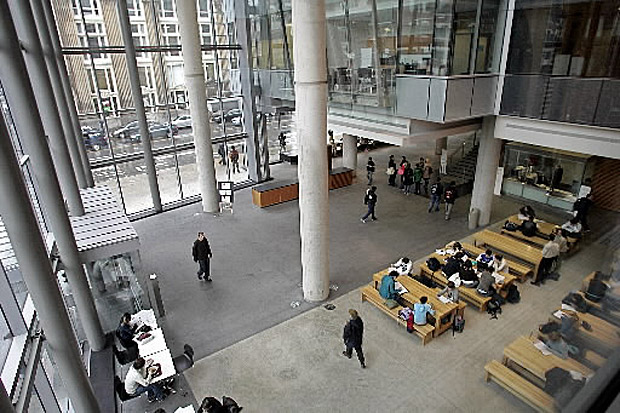University students who go to see Ellie Hummel generally have more basic things on their minds than higher tuition fees. Things like groceries.
Hummel, ecumenical chaplain and co-ordinator of the multi-faith chaplaincy at Concordia University, oversees the emergency food fund for students who are struggling to make ends meet.
This year, more that 700 university students have turned to the service to bail them out when loan and bursary cheques were delayed, part-time jobs fell through, and the cost of tuition, ancillary fees and textbooks – coupled with rent, food and other essentials – caught them off-guard.
Hummel thinks of the student from Vancouver who came to them in desperation after losing his job.
“There are a lot of stories like that. Single parents and international students who come here, sometimes with their families. They think they have a job as a teaching assistant lined up and somehow it doesn’t come through,” Hummel said.
“There is a huge need. The state of the economy also makes a real difference. The first jobs that go are part-time jobs, or else students get hourly jobs but with fewer hours.”
Concordia’s emergency food program dates back more than 20 years, when it began as a community outreach food basket program in Notre Dame de Grâce operating out of the Loyola chapel. Gradually, it evolved to address the need closer to home, among students on the university’s west-end and downtown campuses, with canned goods replaced by grocery gift cards.
“There is a certain dignity in doing your own shopping,” Hummel said. “Gift cards are available in most stores these days. No one needs to know how you got it.”
In 2009, Concordia’s emergency food plan gave out more than $60,000 in food cards.
“That scared me a little bit,” said Hummel, who said this year’s tally will be roughly $40,000, partly as a result of more stringent guidelines on what constitutes a true cash crisis.
“It’s not just a supplement to your income. It’s really for emergency cases,” Hummel said, although she can’t remember a time she turned down anyone who asked for help. “It’s about compassion.”
Money for needy students comes from donations to the university’s fundraising campaign, as well as grassroots efforts.
“We have people who give $5 or $10 and we have people who write a cheque for $200,” Hummel said. “Every penny we raise goes to food cards. In some classes, they pass a hat. There are raffles and bake sales. It’s a neat way to involve people.
“We increased our giving by almost $10,000 last year. So, we are almost balancing. It’s hand-to-mouth. We take in and we give out.”
How much money students get varies depending on the situation, and whether they have a child, spouse or other dependents to feed.
“We try to give enough for several bags of groceries.”
Students who receive money sometimes ask if they need to pay it back. Hummel says no, but asks that they share the spirit of compassion and kindness when they are able to help someone the way the emergency food plan helped them.
“I really believe it makes a difference for some students whether they receive their degree or not.”








Comments